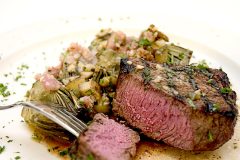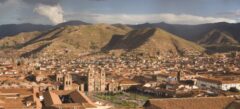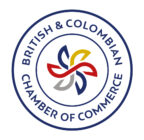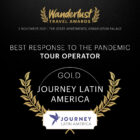
Wilful ignorance is one of my pet peeves, in particular when it stems from a blind refusal to learn because prejudice is stronger than reason. Then it becomes something akin to despair. And so this is what I felt during one evening some years ago when a friend was visiting. She preferred infusions over black tea and thus, having just returned from a trip to Bolivia, I happened to have some coca tea (*) which I duly offered. Her answer was a suspicious look and “thanks, but I don’t do drugs”.
Having sold countless trips to Andean regions, this is one of the most entrenched myths surrounding an ancient custom: Coca tea, or chewing coca leaves, means that you will a) become addicted; b) get ‘high as a kite’ and c) will be literally drinking cocaine. So let’s debunk this, shall we?
To be fair, there are good reasons for this misconception. The effects of the plant were discovered in the mid 1800s by a German student who was able to isolate the active ingredient of the leaf, naming this alkaloid Cocaine. And then the use of this ingredient became widespread – Freud, medicine, Sherlock Holmes, Coca Cola, partygoers in the early 1900s, you name it. It didn’t take long for the bubble to burst however, and, as the negative effects made themselves known, the alkaloid was banned and eventually outlawed in 1914 – in the US, at any rate. This decision led to further studies during the 40s and 50s, which eventually led to the coca leaf being listed on Schedule I of the 1961 UN Single Convention on Narcotic Drugs together with cocaine and heroin, with a strict control level on medical and scientific use. In other words, it was made illegal because it is, allegedly, easy to extract the cocaine alkaloid from the leaf and equates coca with cocaine.
Here is the rub, though. I say allegedly because you need a little lab to do so. Efficient extraction requires a degree of chemical expertise and a series of elements – alkalis such as cement or calcium carbonate, leaching agents such as boric, sulphuric and hydrochloric acids, and precipitants such as potassium permanganate –hardly household staples. And this is only to arrive at a semi-refined coca paste. For the finished product you need more chemicals and procedures that hardly count as your usual activities of any post-party Friday night when you happen to have a few leaves hanging around your flat. “Easy to extract” sounds a bit far-fetched, to be frank.
Furthermore, there is a big difference between this extraction, and whatever products people derive from it, and the leaf. Cocaine, to start with, is a single alkaloid with a clear molecular structure which gives you short lived feelings of euphoria, alertness, energy and self-confidence. But these don’t last long and it also includes constricted blood vessels and increased temperature, heart rate and blood flow; it is highly addictive and users tend to have higher rates of depression, anxiety and negative cardiovascular effects.
Coca leaf, on the other hand, has been used for thousands of years in the Andean world mostly for its medicinal properties and religious significance – the Inca believe it was a gift from the gods. Furthermore, the leaves have always been used to overcome fatigue, hunger and thirst – though by no means an alternative; rather like a digestive or whilst working long spells in mines, for example- , and they are particularly effective against altitude sickness. It short, it is a plant with a complex array of mineral nutrients, essential oils, and varied compounds with greater or lesser pharmacological effects, one of which happens to be the alkaloid cocaine. It definitely doesn’t get you high or make you addicted. And you’re not drinking cocaine. Granted, it is not particularly tasty, but we’re not discussing taste buds here, are we? Not that my friend ever asked about it. And by the way, I haven’t seen her for a very long time. She probably thinks I’m in the gutter now.
(*) Please note it is illegal to bring the tea bags back into the UK (and probably the rest of Europe) – if found they would be confiscated by Customs, though not to worry, you won’t get a police record.
Tailor-made holidays
Flexible, custom-made holidays to Latin America created to match your exact requirements: our tailor-made itineraries are as unique as the clients for whom they are designed.
Design my tripPapagaio
Your edit for Latin American inspiration
Our exciting range of articles on Latin America explore everything from iconic destinations and lesser-known cultural gems to delicious traditional recipes. You’ll also find exclusive travel tips, first-hand client reviews and the chance to get your personal questions answered by our travel experts.
View Extraordinary Inspiration






































